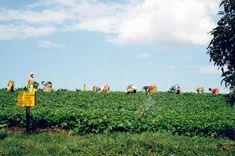
“Exporters and their out-growers, big and small, have responded well to market demands for food safety and traceability,” said Steve New, director of US development agency sponsored KHDP.
“EurepGAP has generally had a positive effect on production and incomes. Nevertheless, costs are going up at a faster rate than the provision of support services and infrastructure for the industry. Strategic issues such as roads, energy costs and sea freight need to be addressed urgently to maintain growth and diversification.”
New was speaking as KHDP conducts a survey into the effects of EurepGAP certification on the horticulture sector in Kenya. The survey is being carried out by Farm Produce Technology among 1,020 growers in 12 Kenyan districts who between them account for more than 80 per cent of small-holder export production. “For those growers able to comment on their gross returns and costs, there has been a significant increase in sales since they adopted EurepGAP-type production,” said New. Most of those interviewed also said they would continue implementing aspects of the EurepGAP standard because they could see the health, hygiene and environmental benefits. “Some also reported increased income from local market crops as a result of employing some of the EurepGAP recommendations.”
A full report on the survey is still being prepared, but so far it shows that although a relatively small proportion of growers have achieved certification, a larger number are working towards certification and the number of those who have improved their practices sufficiently to stay in the export trade does not seem to have fallen.



